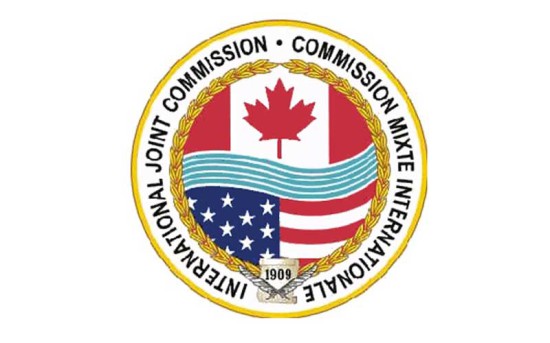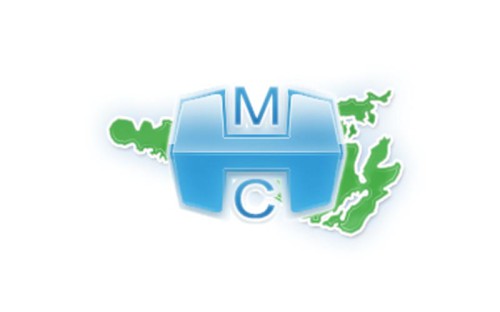MANITOULIN—While it is expected that the International Joint Commission (IJC) for Canada and the United States will conclude its deliberations and make recommendations early in 2013 on water managements, flows and regulations, preliminary results from the US Army Corps of Engineers showed Lakes Michigan and Huron closed the year with the lowest December levels on record.
“We have received a letter from the IJC committee acknowledging the concerns and comments we have made with the study and the petition we sent,” said Mike Wilton of Spring Bay last week.
After flirting with historic low levels through 2012, Lakes Michigan and Huron closed the year with the lowest December levels on record, preliminary figures show, according to the Great Lakes and Seaway Shipping Daily News, providing information from the US Army Corps of Engineers. In a January 4, 2013 report, “the lake system finished December with a mean of 576.15 feet above sea level for the month. That’s just beneath the all-time low mean of 576.2 for the month set in 1964. The record highlights one of the worst years in recent memory for levels on the Great Lakes. While Michigan and Huron reached record low levels, other lakes flirted with all-time lows after a winter and spring that produced far less rain and snow than normal.”
Keith Kompoltowicz, the corps chief of watershed hydrology, was reported as saying Michigan and Huron rose only about four inches this year compared to a normal foot or so. The losses had a huge impact on the region from vastly expanded shorelines and beaches, to boats running aground in normally navigable waters, to shipping companies having to drastically reduce freighter cargo.
Locally, a Barrie Island resident told the Recorder that water levels have dropped in her area substantially in the past few months. “Since September the levels have dropped dramatically,” stated Anne Kettling. “It is really serious, and we need to wake up people to take a look at doing something (to alleviate dropping water levels).”
“It was a dry summer, but in September to now, the that water levels have dropped 45 centimetres—that’s a lot of water,” stated Ms. Kettling. “We have a shoreline that is just currently on the border. We now have a little island in front of our place that you can now walk over, and our two boat docks were dry.”
“Snow alone can’t bring the levels back up, and even so we don’t get the same amount of snow we did in the past,” said Ms. Kettling. “It was certainly a dry year, but you can’t blame all of this on the weather, obviously the water is being drained somewhere else.” She pointed out that from the time she and her husband Fritz went on vacation to the time they returned home, from September 8-24, “the water levels dropped dramatically, over one feet. I think it comes to a scary point, Manitoulin is the biggest freshwater island in the world, why isn’t it being taken care of?”
Bob Glasgow, a Gordon/Barrie Island councillor, told the Recorder, “I heard a report on CBC Newsworld last week stating the Missisisippi River is dangerously low to the point it may interfere with shipping in the US. In their report they also talked to a representative of the US Army Corps of Engineers talking about how important the Mississippi is, and how a river that comes in from Lake Michigan may need to have its water diverted again. But Lake Huron, Superior, Michigan have the same problem. What is the US Army Corps of Engineers going to do? They need to do something to help everyone affected.”
As reported previously, last year 3,619 Manitoulin Island residents, off-Island and seasonal residents and visitors signed a petition spearheaded by Mr. Wilton and forwarded to MP Carol Hughes, calling on Canada and US governments to restore Great Lakes Water Levels. It was noted that since 1999, the water levels in Lake Huron has dropped 4-5 feet (150 centimetres) with no sign of rebounding. The petition has been broken up and will be presented in parliament.
“We are now at the 1964 low water mark,” said Mr. Wilton.
Ms. Hughes, in a column she wrote December 10, indicated water levels are reaching the critical point for Great Lakes Huron and Michigan. “Since the summer my office has seen one issue pop up consistently, week to week and month to month the low water levels in Lake Huron and Lake Michigan. I have received letters, emails, phone calls and a large petition from Manitoulin Island on the subject. People’s concerns range from shoreline habitat degradation to the protection of their own structures like docks and boat ramps.” The IJC met on Manitoulin Island last summer and was seized with the problem and a number of possible explanations for the phenomenon, wrote Ms. Hughes, who said at least one of these could be addressed quickly.
“There are actually a number of good explanations for the disappearing water,” wrote Ms. Hughes. “Isostatic rebound, a geologic term for the way land compressed by glaciers rebounds, is one reason for some change, but this is incremental and we are unable to do a thing about it. Over usage and diversion of water from Lake Michigan are likely culprits, but they are difficult to pin down. The one thing we could do is address the increased flow of Lake Huron water into the St. Clair River. This happens when we clear material (dredge) for that river’s shipping channel.”
“While dredging of the river dates back to the 1850s, it has only been since the early 1900s that it has fallen under the mandate of the IJC,” wrote Ms. Hughes. “Since then there have been a number of approvals for a project that would create structures to slow the river down and compensate for the effects of dredging. Despite that, these compensating structures have never been built-and they easily could.”
In regards to comments that were received by the IJC commission on the International Upper Great Lakes Study and the next steps to be taken by the IJC, Mr. Wilton had received a letter from the commission dated December 26, 2012. The letter states in part, “the IJC initiated this study to determine whether the regulation plan for Lake Superior outflows can be improved to address the evolving needs of users on lakes Superior, Huron, Michigan, and Erie. We appointed an International Upper Great Lakes Study Board to assist with the review of the regulation plan and to assess other matters related to water levels and flows in the upper Great Lakes system.”
Commissioners heard from 212 people at 13 public hearings held in communities across the upper Great Lakes region, with approximately 1,600 people in attendance. During the comment period, people also submitted 334 letters, 782 email messages, 115 posts on IJC.org and 2,020 post cards.
“There was widespread concern about low water levels and many people voiced support for measures in the St. Clair River to restore the levels of lakes Michigan and Huron. Others expressed concerns that such measures would increase shoreline damages during periods of high water levels. Support was expressed for the proposed plan to regulate lake Superior outflows. Comments also supported the development of an adaptive management strategy to better understand and respond to long term trends regarding water levels. Others felt that the levels of Lakes Michigan and Huron should be restored before any such measures were pursued,” the letter states, adding, “the IJC intends to conclude its deliberations and make recommendations in early 2013.”





